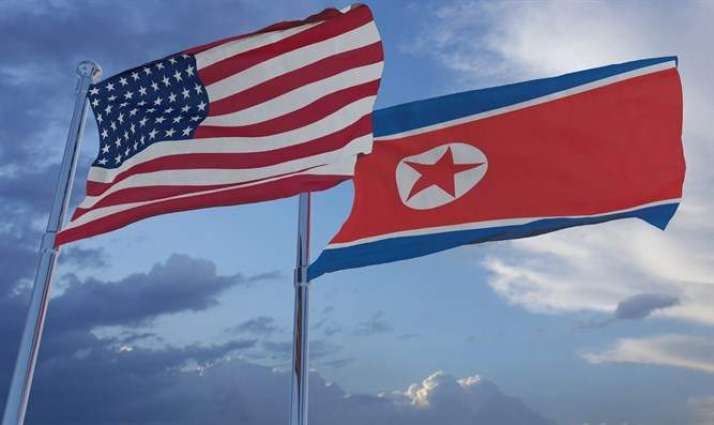The abrupt end of the Swedish talks between the United States and North Korea indicates Pyongyang's disappointment over a lack of change in the US position following National Security Adviser John Bolton's resignation in mid-September as different understanding of denuclearization remains a main stumbling block in talks, experts told Sputnik
MOSCOW (Pakistan Point News / Sputnik - 09th October, 2019) The abrupt end of the Swedish talks between the United States and North Korea indicates Pyongyang's disappointment over a lack of change in the US position following National Security Adviser John Bolton's resignation in mid-September as different understanding of denuclearization remains a main stumbling block in talks, experts told Sputnik.Last week, the Japanese Coast Guard said North Korea tested a ballistic missile launched from a submarine that fell into the waters of Japan's exclusive economic zone. The launch was the 11th missile test this year, but the first one involving a missile designed to be launched from a submarine. Some days later, a North Korean delegation walked out of working-level denuclearization talks with US officials in Sweden. According to Yonhap news Agency, a North Korean diplomat said the United States came to the meeting empty-handed.
North Korea might have anticipated a shift in the US approach to the negotiations after the resignation of Bolton, whom they likely considered to restrict the United States' options in the recent month, yet the reality fell short of their expectations, Robert Winstanley-Chesters, a North Korea expert and lecturer at the University of Leeds and Birkbeck, University of London, told Sputnik.
"North Korea perhaps was anticipating a greater difference between the US position after the resignation of John Bolton, and was in reality disappointed that the American offer in the talks had not changed in the way they anticipated," Winstanley-Chesters said.
James Hoare, a research associate at London's school of Oriental and African Studies, told Sputnik that North Korea, while realizing that all sanctions were unlikely to be lifted, still hoped for some practical gesture from the US given Trump's desire to improve relations.
"It looks as though the Swedish meeting saw both sides sticking to their current position, so nothing happened ... I think the main problem is that both sides have high hopes but their hopes do not coincide. [US President Donald] Trump may well seek electoral advantage from an improved relationship with the DPRK but does not seem to understand that he will need to make some move towards meeting their expectations," Hoare, who served as UK charge d'affairs in Pyongyang, said.
Further dwelling on the reasons behind the collapse of the talks in Sweden, Winstanley-Chesters suggested that the Swedish talks faced the same obstacle as before the difference in how the two nations understand denuclearization itself.
"Namely, that for North Korea denuclearisation means not only the reduction in its own capacity, but also the reduction in the US nuclear umbrella in East Asia and the removal of US troops from the Korean Peninsula ... For the United States, denuclearisation means the denuclearisation of the North Korean side, and in advance before anything else or any other reduction in sanctions," the expert explained.
Underlining that complete denuclearization of the Korean Peninsula, pursued by the United States was an unrealistic goal, Hoare stressed that Washington did not seem willing to offer something to Pyongyang to bring it back to the negotiating table.
"I suspect that the North Koreans are feeling that they are being strung along and that they have gained nothing of real value from the US. It is going to require some effort to persuade them back to the table and there is no sign that the US is prepared to do anything that would encourage the North Koreans to go through another round of talks," he said.
Winstanley-Chesters, on the other hand, was more optimistic about the prospects of further talks, noting that continuation of the negotiating process benefited both sides.
"I suggest that ultimately the abrupt end of the talks is ... a question of both sides still trying to find a way to approach the talks ... It is to both North Korea and the Trump administration's advantage that both sides continue to talk and try to suggest potential future positive outcomes � so I am sure there will be further talks and engagements," he said.
US-North Korea talks on denuclearization of the Korean Peninsula stalled in February following an unsuccessful summit in Hanoi between the two countries' leaders. The talks in Sweden marked the first high-level discussions between the United States and North Korean officials since February.




